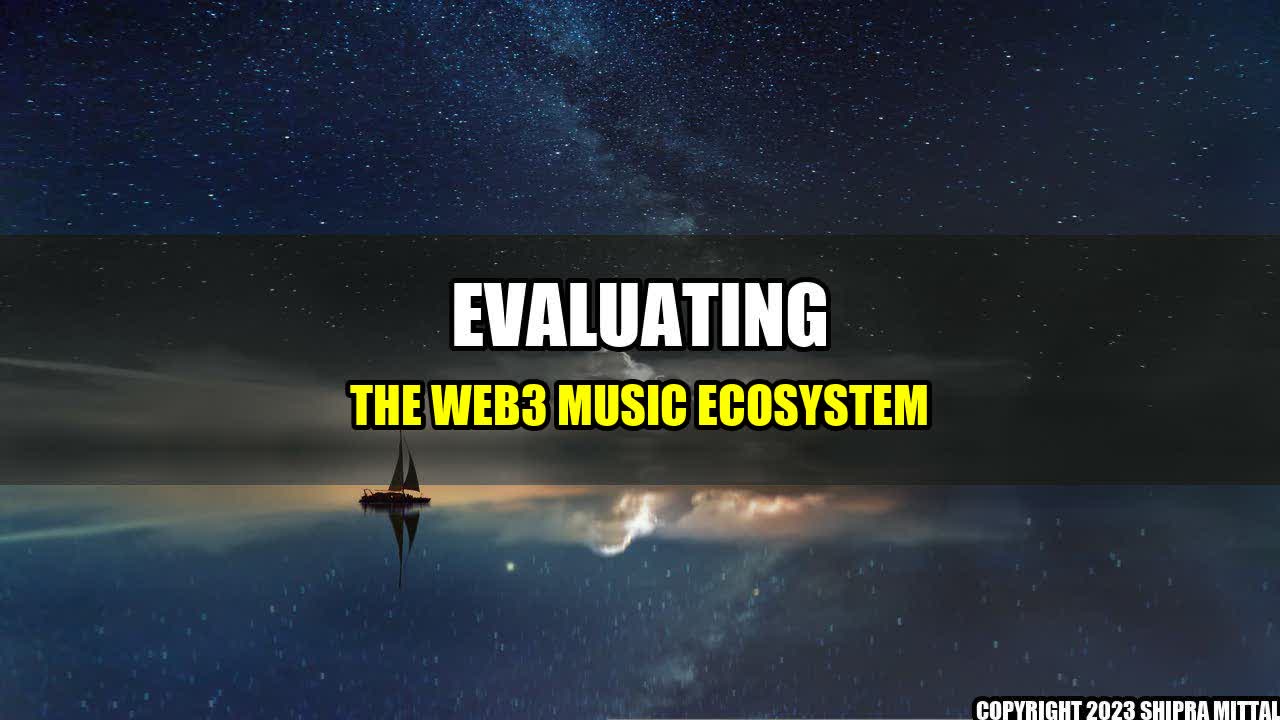Imagine this: You're a musician who has been struggling to make a living off your art. You've played countless gigs, uploaded your music to all the major streaming platforms, and promoted your work on social media. But despite your efforts, you're barely making enough to pay rent. Sound familiar?
Now, imagine a new world where artists are in complete control of their work. Where they can sell their songs as unique digital assets, known as non-fungible tokens (NFTs). Where fans can directly support their favorite artists by purchasing these NFTs, knowing that they own a piece of the musician's history. Welcome to the Web3 music ecosystem.
The Web3 music ecosystem is built on the principles of blockchain technology. It promises a fairer, more transparent landscape for artists, fans, labels, and everyone in between. Let's take a closer look at some of the main companies driving this movement:
1. Audius
Audius is a decentralized music streaming platform that allows artists to directly upload and monetize their music. It uses blockchain technology to ensure that creators are fairly compensated for their work. Audius has already attracted over 5 million monthly active users and has partnerships with major players in the industry, such as TikTok and Twitch.
2. Catalog
Catalog is a platform that allows artists to mint their music as NFTs and sell them to fans. It provides a new revenue stream for artists, as well as a unique way for fans to support their favorite musicians. Catalog has already facilitated several high-profile NFT sales, including a song by Grammy-nominated producer Illmind.
3. Ujo Music
Ujo Music is another platform that allows artists to sell their music as NFTs. But what sets Ujo apart is its emphasis on collaboration and ownership. It offers tools for artists to track their collaborators and ensure that everyone involved in the creation of a song is fairly compensated. Ujo has partnered with major artists such as Imogen Heap and RAC.
These are just a few examples of the companies leading the charge in the Web3 music ecosystem. But as exciting as this movement is, there are still some questions that need to be addressed:
- How do we ensure that small, independent artists can compete in this new landscape?
- What happens to the role of labels and distributors in this decentralized world?
- How do we ensure that the environmental impact of blockchain technology is minimized?
Only time will tell how these questions will be answered. But one thing is clear: The Web3 music ecosystem is here to stay, and it has the potential to completely transform the way we think about music.

Akash Mittal Tech Article
Share on Twitter Share on LinkedIn